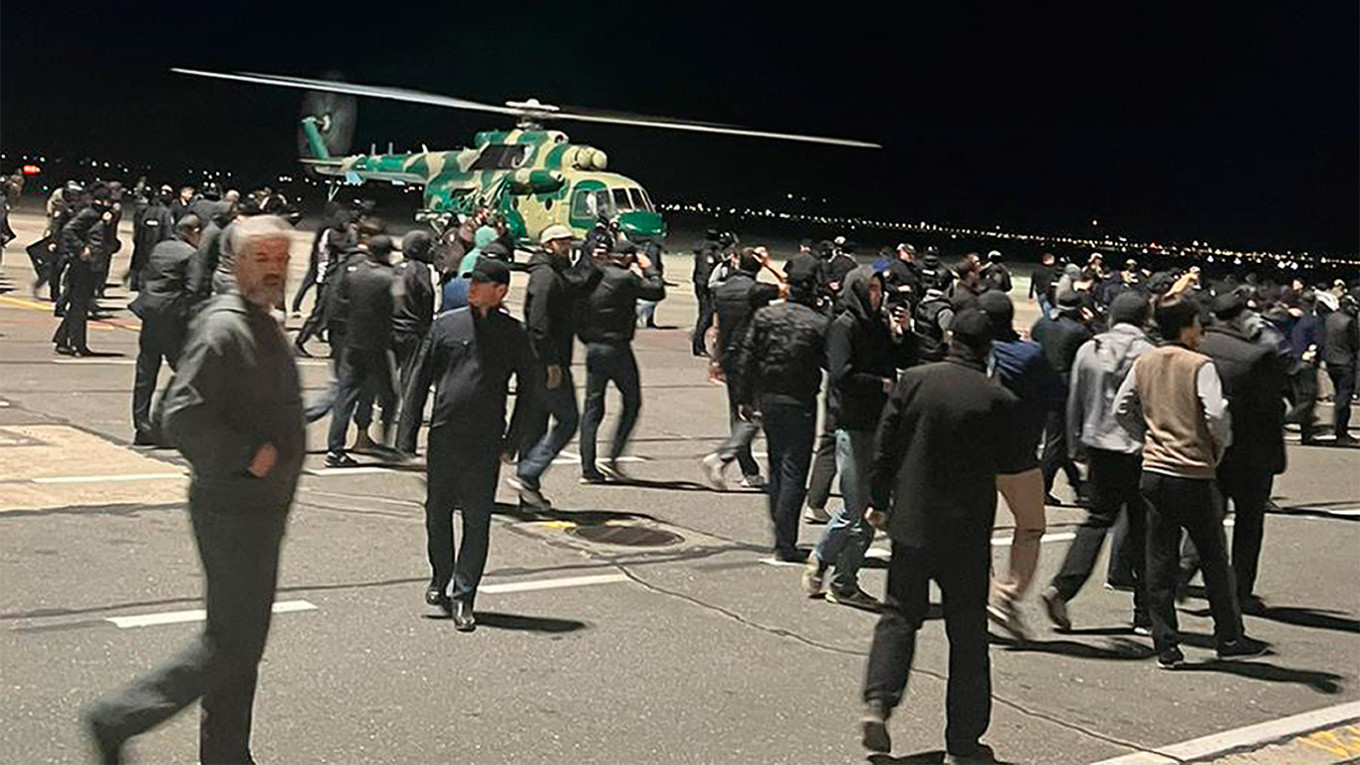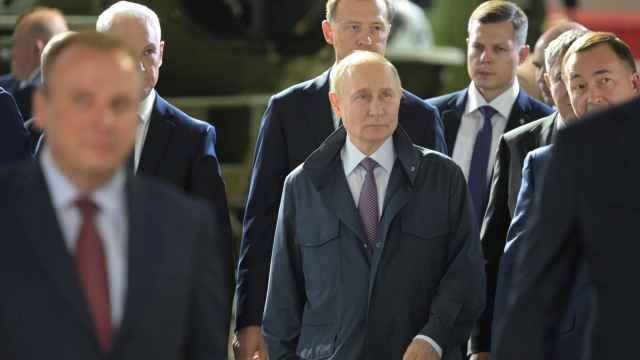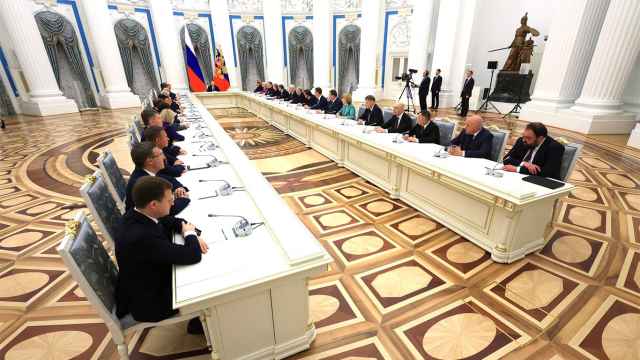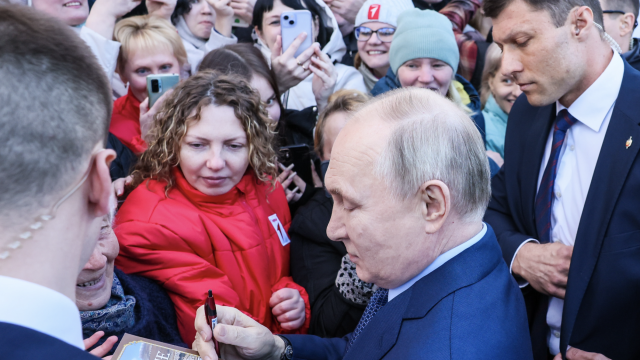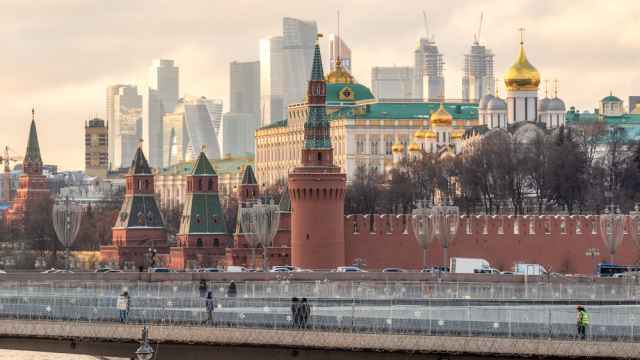The anti-Israeli riot in Russia’s republic of Dagestan has exposed the Kremlin’s failure to maintain stability as it has exerted total control over the country, three Russian officials, a former Kremlin official and independent experts told The Moscow Times.
Dagestan, a majority Muslim region and political stronghold for the Kremlin in the North Caucasus, was rocked Sunday night when hundreds of men stormed the region’s main airport in search of rumored Israeli refugees on an arriving flight from Tel Aviv.
The incident, which saw 20 people injured and at least 60 detained, marks the second shocking political and security failure in southern Russia this year following the June 24 Wagner mercenary mutiny.
"This is a national emergency. It's a failure of everyone: the domestic policy supervisors in the Kremlin, the special services and the local authorities," said a Kremlin official who previously worked in the security services and was granted anonymity to speak candidly.
A former Kremlin official who spoke to The Moscow Times agreed with that assessment.
Another official in the Russian government said he and his colleagues felt confused as they watched the events in Makhachkala over the weekend.
"In my inner circle, almost everyone is at a loss. This is a complete replay of the Prigozhin rebellion," a Russian government official said by social media messenger in response to a question from The Moscow Times.
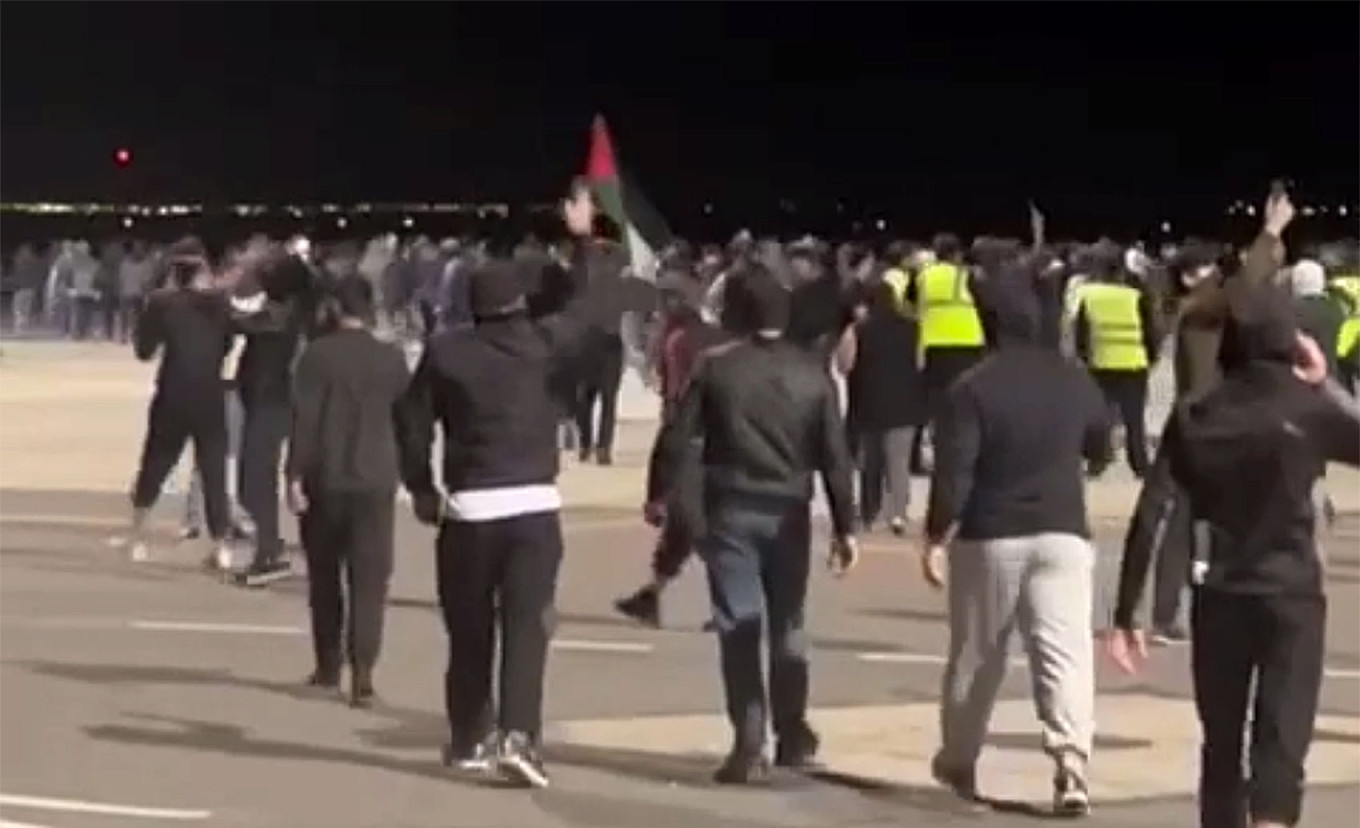
Russian officials and the Kremlin did not publicly respond to the situation until Monday, calling it an attempt by Russia's external foes to divide the country from the outside.
President Vladimir Putin, who has not commented on the riot, is set to convene a meeting with top officials later Monday to discuss the events in Dagestan.
The riot was largely absent from Russian state television — the mouthpiece of the regime — through Monday morning.
The North Caucasus carries great symbolism for Putin personally, with Moscow’s wars on Chechen separatists as well as his promise to defeat terrorism in Chechnya, Dagestan and other republics defining his early presidency.
Subsequently, the Kremlin has funneled multibillion-dollar subsidies to the region in an effort to improve residents’ well-being and imposed strict control over the regions to prevent any political or religious unrest.
Putin routinely boasts of Russia’s status as a peaceful multi-ethnic and multi-religious federation, which he says is a source of dignity and strength for the country.
He and the ruling, pro-Kremlin United Russia party have historically enjoyed an overwhelming electoral advantage in the North Caucasus, which the Kremlin has attributed to its successful policy of improving local quality of life.
However, researchers say the North Caucasus republics’ loyalty is the result of pressure and manipulation from Moscow more than anything.
It was Dagestan that the Kremlin chose for Putin's first PR trip after Russian security services were taken by surprise and failed to prevent Wagner mercenary chief Yevgeny Prigozhin's mutiny against the military.
Days after Prigozhin’s men occupied a southern Russian city and marched on Moscow, hundreds of women and children in the Dagestani city of Derbent chanted "Putin" and took selfies with him. State TV channels trumpeted the great level of support for Putin throughout the region.
Just four months later, more than 1,200 young men stormed Makhachkala International Airport, streaming onto the tarmac, stopping buses and checking people's passports in search of Israelis and Jewish people.
The authorities’ failure to prevent the riot, followed by the initial failure to intervene and restore order, raises questions about the extent to which the Russian security services keep Putin informed — as they knew in advance that the situation in the Caucasus was heating up due to the Israel-Hamas war, said the Kremlin official who previously worked in the security services.
"I can acknowledge that everyone is afraid to be alarmist and warn the president of problems in advance," he said.
Reports of pro-Palestine demonstrations in the North Caucasus — a region with a poor economic outlook and high unemployment rates where religious sentiment has been increasing in recent years — have appeared in the media for weeks since the Israel-Hamas conflict broke out.
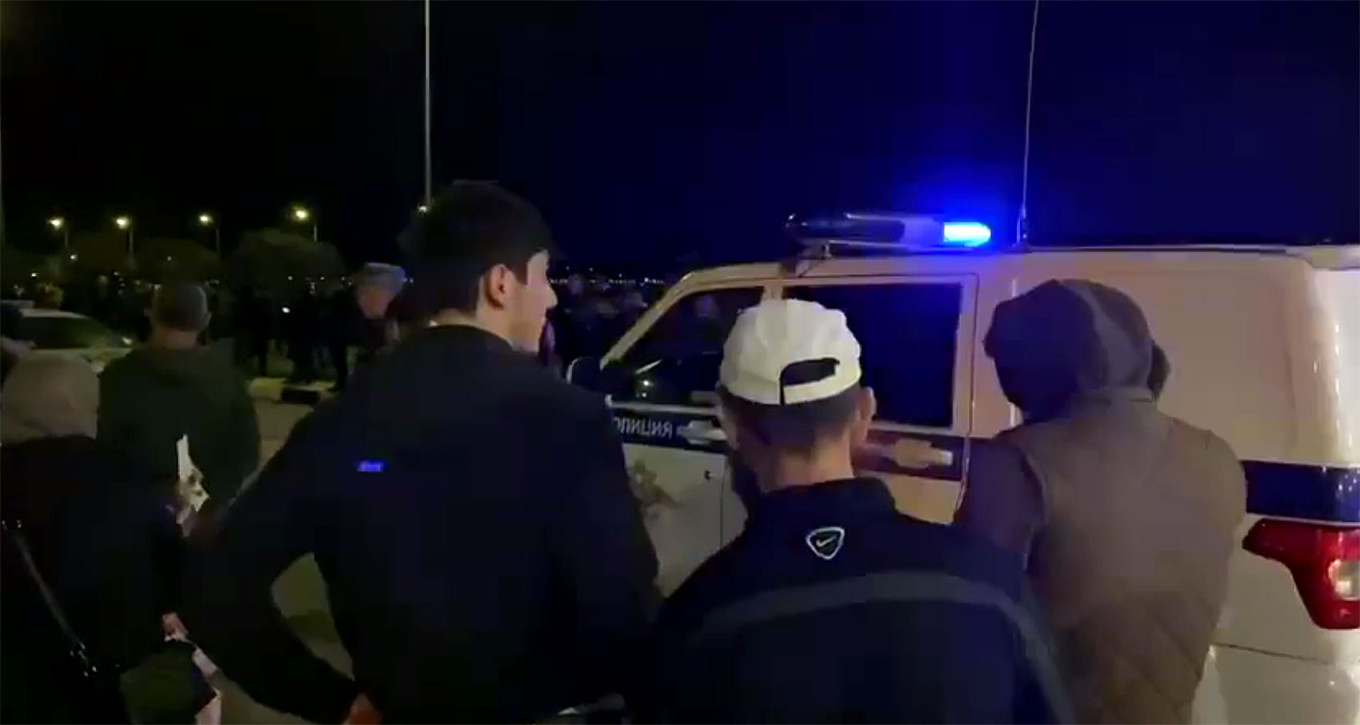
But neither the Kremlin, the State Duma nor the security agencies took action on these signals of unrest.
"The situation has been escalating every week since the beginning of the conflict between Israel and Hamas. Everyone in the Kremlin, the FSB and the Interior Ministry knew about it. But we couldn't prevent it," the Kremlin official told The Moscow Times.
The first reaction from Dagestani authorities did not come until late Sunday evening, after the riot had been dispelled, when regional leader Sergei Melikov spoke to reporters, appearing unconfident.
Melikov, who himself was appointed at Putin's suggestion, described what happened as a “stab in the back” of Dagestani soldiers fighting in Ukraine and accused Kyiv and the West of trying to destabilize the situation in the Caucasus.
“I am f***ing shocked. No other word even comes to mind. It’s as if we have no FSB or Interior Ministry in Dagestan. No one is preventing the crowd and has not stopped this riot at the root,” Magomed, a resident of Makhachkala, wrote to The Moscow Times by messenger when asked about his view of the events.
Another factor behind the anti-Semitic riot may have been rhetoric from Putin himself. In the view of the Russian Jewish diaspora, Putin has expressed a pro-Palestinian stance since Israel went to war with the Hamas militant group this month, said Alexei Levinson, a sociologist from the independent Levada Center pollster.
“In the past, a certain favoritism of the [Russian] authorities toward Jewry was demonstrated, and this was very important for the entire bureaucratic vertical: it means that Jews cannot be touched, Putin does not command it,” Levinson said in an interview with independent news outlet The Insider.
“Today, Putin's position of taking a side in the Israeli-Palestinian conflict, without making explicit anti-Semitic statements, sends a kind of signal.”
The Kremlin has built a Russian system around Putin: he is the ultimate arbiter and the person without whose instruction no decisions are made, and he himself has also been slow to make a decision, political expert Tatiana Stanovaya said.
“As in the case of Prigozhin, this is a banal unwillingness to take responsibility. This is hesitation in the absence of political understanding of how to react in such cases,” Stanovaya wrote on Telegram, describing Russian authorities and law enforcement’s behavior in the absence of a command from Putin.
More generally, hate speech has become the new norm in Russia, as it is heard every day on pro-Kremlin talk shows, Andrei Kolesnikov, a senior fellow at the Carnegie Endowment for International Peace, told The Moscow Times.
“The pogrom and the sledgehammer are the new Russian symbolic lineup,” Kolesnikov said, referring to attacks on Jews in the Russian Empire and the sledgehammer used to execute a Wagner defector, “quite successfully replacing the sickle and hammer.”
A Message from The Moscow Times:
Dear readers,
We are facing unprecedented challenges. Russia's Prosecutor General's Office has designated The Moscow Times as an "undesirable" organization, criminalizing our work and putting our staff at risk of prosecution. This follows our earlier unjust labeling as a "foreign agent."
These actions are direct attempts to silence independent journalism in Russia. The authorities claim our work "discredits the decisions of the Russian leadership." We see things differently: we strive to provide accurate, unbiased reporting on Russia.
We, the journalists of The Moscow Times, refuse to be silenced. But to continue our work, we need your help.
Your support, no matter how small, makes a world of difference. If you can, please support us monthly starting from just $2. It's quick to set up, and every contribution makes a significant impact.
By supporting The Moscow Times, you're defending open, independent journalism in the face of repression. Thank you for standing with us.
Remind me later.



